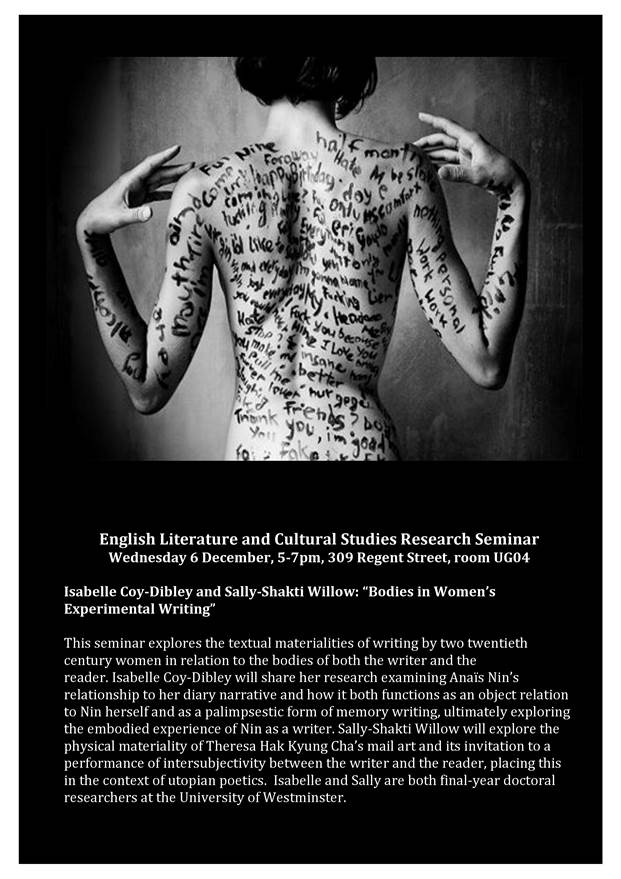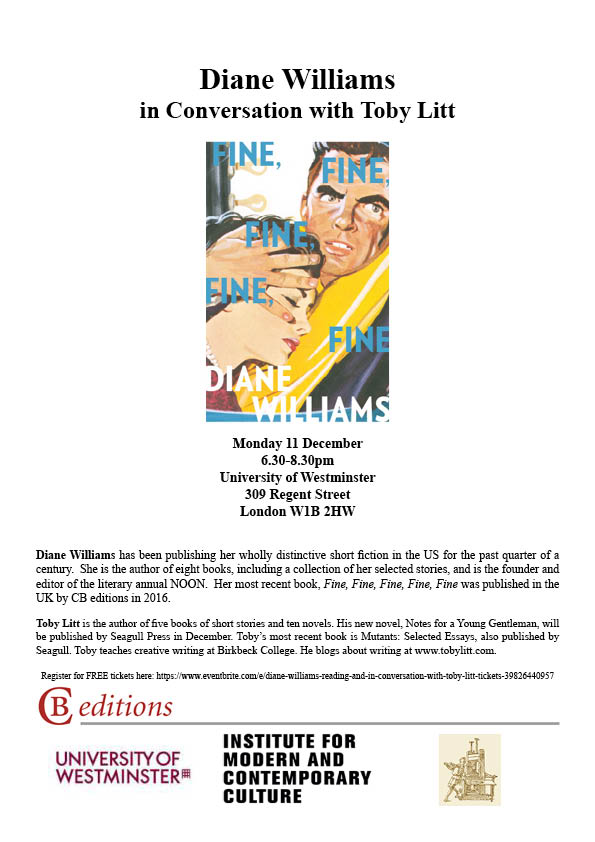Posts by David
Cyclo-Photographers, Visual Modernity and the Development of Camera Technologies
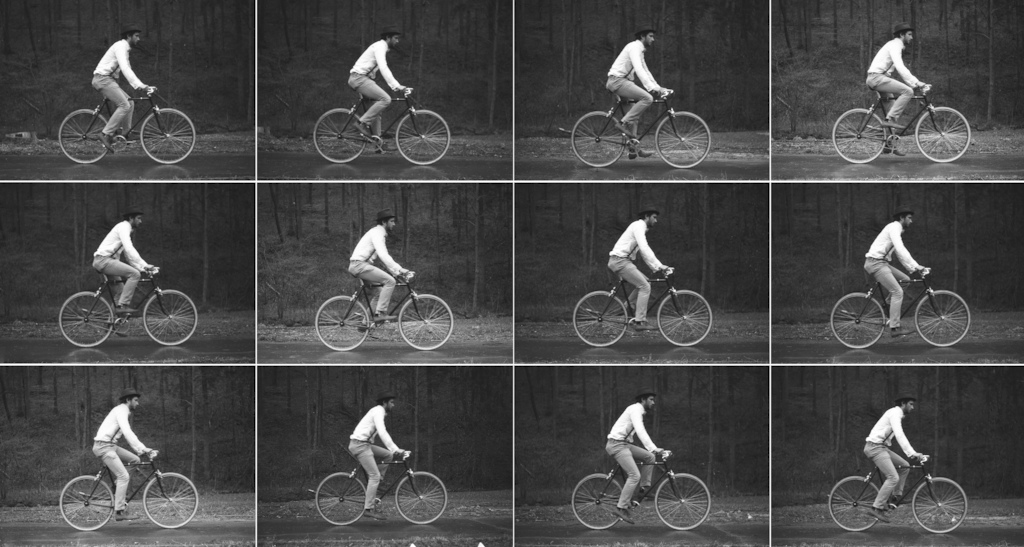
We are delighted to announce the publication of a new essay by IMCC member, Sara Dominici, ‘”Cyclo-Photographers”, Visual Modernity and the Development of Camera Technologies, 1880s-1890s’, in the journal History of Photography (42.1). For a few lucky people, you can download a copy for free via the following link (the first 50 on a first come first served basis):
https://www.tandfonline.com/eprint/w2ZiVhX3mTNjcAaV2EYy/full
Sara demonstrates in the essay how the intertwined development of popular photography and cycling in Britain was felt so close that, in the 1880s, contemporary commentators could write of ‘cyclo-photographers’. The camera apparatus available at this time, bulky and fragile, was largely impractical to carry on a ride, and thus cyclo-photographers joined outdoor photographers in asking manufacturers for simpler and easier to operate cameras. However, a close reading of primary sources reveals that such demands were also the result of a new engagement with the possibility of seeing enabled by cycling itself. What was the cyclo-photographers’ experience of visual modernity? The article explores whether, and in what ways, the parallel emergence of a desire for compact cameras was linked to the new, and interconnected, ways of moving and seeing that the engagement with these two modern cultural technologies had made possible.
Trans Representations on Latin American & Chinese Screens

Thursday 21st June 2018, 16.00 – 18.30
Room UG04, University of Westminster, 309 Regent Street, London W1B 2HW
Trans Representations on Latin American and Chinese Screens
Representations of trans characters have been at the centre of recent film and TV in two locations often perceived to be traditionally conservative: Latin America and China. This seminar brings together research from these geographies to create a dialogue around film and TV production, trans representation, the ethics of visual culture and the interplay between screen studies and local culture in this transnational context.
Speakers include:
Dr Gustavo Subero, ‘Carmín Tropical: Trans Identity and Mexican Neo-Noir Cinema’
Dr Hongwei Bao (University of Nottingham), ‘Shanghai is Burning: Extravaganza and the New Queer Chinese Cinema’
Dr Liz Harvey-Kattou (University of Westminster), ‘Breaking the Mould in Latin American Film: Trans Representation in A Fantastic Woman and Hold Me Like Before’
Dr Jamie Zhao (University of Warwick), ‘Queer, Yet Never Lesbian: Tomboyish Celebrities in the Chinese Singing Competition Show Super Girl‘
All welcome! Book a place here.
Queering Academia: A Two Day Gathering on Queer Education and Scholarship, 21-22 June 2018
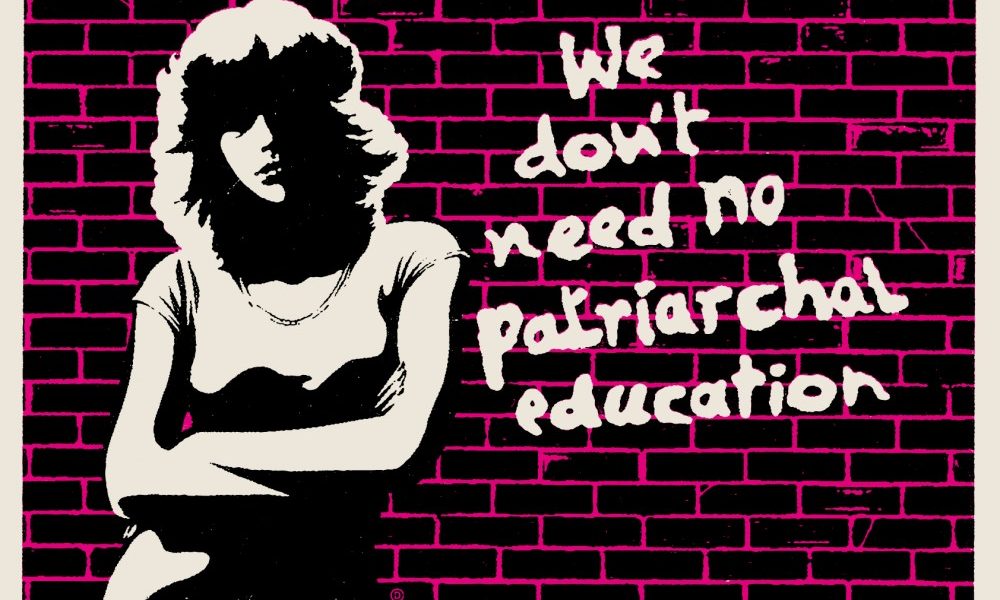
Thursday 21st – Friday 22nd June 2018
Marylebone Campus, University of Westminster, 35 Marylebone Road, London NW1 5LS
Queering Academia
A Two Day Gathering on Queer Education and Scholarship
Queering Academia examines the role of Queer education and scholarship against the backdrop of the changing landscape of Higher Education. This two-day gathering brings together students, academics, and activists to consider the significance of Queer lives (and lived experience) within both formal and informal institutions of learning, with papers, panels, performances, and presentations examining the significance of Queer ways of thinking, being, and acting in education and scholarship.
Programme Information:
https://queeringacademia.wordpress.com/event-programme/
Register online via Eventbrite:
https://www.eventbrite.co.uk/e/queering-academia-a-two-day-gathering-on-queer-education-and-scholarship-tickets-42675556739
Bridging Borders, Creating Spaces, Thursday 28th June 2018

Thursday 28th June 2018, 9.30-18.00
Room UG05, University of Westminster, 309 Regent Street, London W1B 2HW
Bridging Borders, Creating Spaces: Negotiating Multicultural Identities and Belongings among Migrant Communities in Global London
A HOMELandS Workshop
Organised by our colleagues in the HOMELandS research group at Westminster, this workshop focuses in particular on the role of ‘language’ in bridging borders and creating spaces for migrants in global cities. Language is defined here in a broad and metaphorical sense, referring to all sorts of material and immaterial practices that serve the purpose of having a voice, hearing and being heard, and communicating. London as a global city has been a ‘contact zone’ of multiple flows of people, cultures and ideas from around the world, and a ‘migration lab’ for academic research. While there are numerous studies of individual migration groups in London and the UK, surprisingly, so far very few have looked into the nexus between mobility and globality from a comparative and transcultural perspective. This workshop is aimed at filling this gap. By bringing together innovative research on a wide range of London-based migration communities, it seeks to stimulate intellectual dialogues between often segregated studies of migrants and between higher educational institutes and migrant communities, and to break new ground for interdisciplinary research on migration and diaspora.
The workshop will followed at 6pm by ‘Object-Stories’ of British Chinese Women Online Exhibition Launch and Reception in the Cayley Room.
Please book a place via Eventbrite here.
Critical Pedagogies Group Annual Lecture May 24th 2018
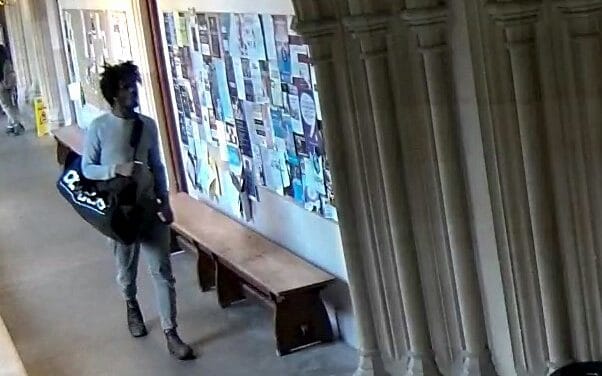
Thursday 24th May, 18:00-21:00 pm
University of Westminster, Marylebone campus, 35 Marylebone Road, London, NW1 5LS [room tbc]
Institutionalised whiteness, racial microaggressions and Black bodies out of place in HE
Remi Joseph-Salisbury (Leeds Beckett University)
On the morning of Friday 3rd February 2017, Femi Nylander – a Black Oxford alumnus – walked through the grounds of Oxford University’s Harris Manchester College. Later that morning a CCTV image of Femi was circulated to staff and students who were urged to ‘maintain vigilance’. ‘Post-racial’ ideology insists on framing such incidents as isolated aberrations bereft of wider structural and institutional context. This lecture centralises the voices of student campaigns as sites of legitimate experiential knowledge in order to offer a counter-narrative. In so doing, the talk draws upon the theoretical concepts of racial microaggressions and bodies out of place in order to argue that Femi’s experience cannot be understood in abstraction from structural white supremacy and the institutionalised whiteness that undergirds Higher Education.
Remi Joseph-Salisbury is a Senior Lecturer in Education Studies at Leeds Beckett University, with research primary research interests in race and (anti-)racism. He is a trustee of the Racial Justice Network, and a steering group member of the Northern Police Monitoring Project. He is co-editor of The Fire Now, a forthcoming collection exploring anti-racism in times of explicit racial violence.
Organised by our friends in the Critical Pedagogies Group. This event is free and open to the public. Booking via Eventbrite is essential.
Mathematics and Literary Production: Oulipian Method as Critique seminar, March 21st
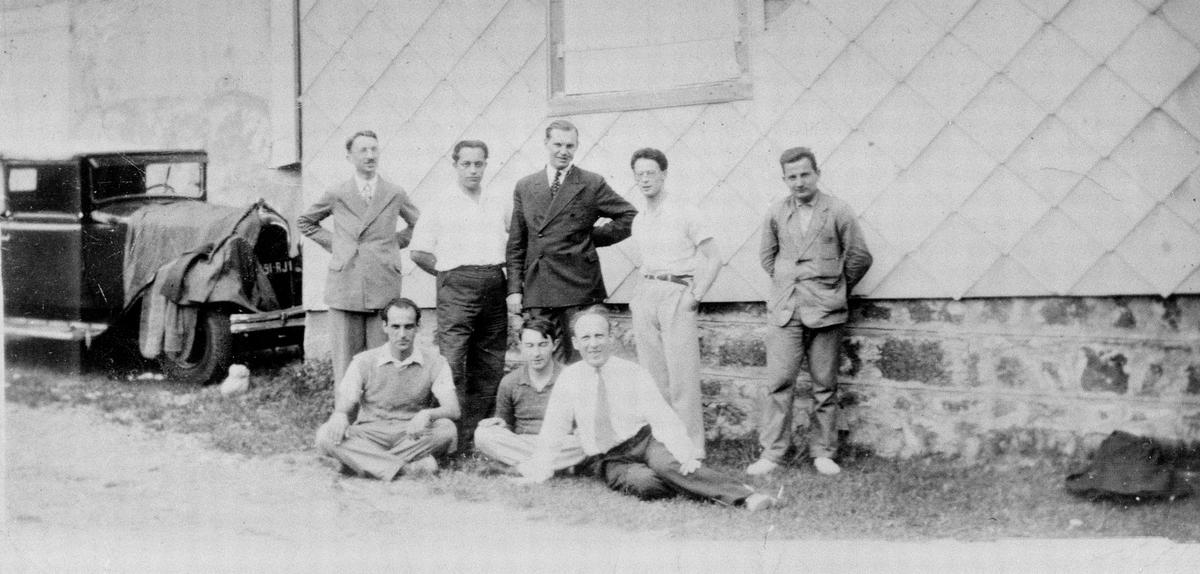
Wednesday 21st March, 5.00 pm
Room 206, University of Westminster, 32-38 Wells Street, London W1T 3UW
Mathematics and Literary Production: Oulipian Method as Critique
Daniel Cartwright (University of Westminster)
The mid twentieth century saw the emergence in French mathematics of a particularly forbidding formalism, pursued under the name of Nicolas Bourbaki. Bourbaki aimed to derive all branches of mathematics from a single set of abstract axioms. A few years after their heyday, another group, the Oulipo, took this formalist mathematical approach and applied it to literature. The Oulipo’s defining method, the formal constraint, was thus conceived mathematically as an axiom of the text. This paper explores the significance of this introduction of mathematical form to writing and will argue that, in the internal failings of Bourbaki’s totalisation of mathematics, and the Oulipo’s parodic adoption of this scheme, there is an underlying critical reflection of the rationalistic conditions of modernity.
All welcome! Followed by usual drinks in the Green Man.
CFP: London Conference in Critical Thought, 29th and 30th June 2018
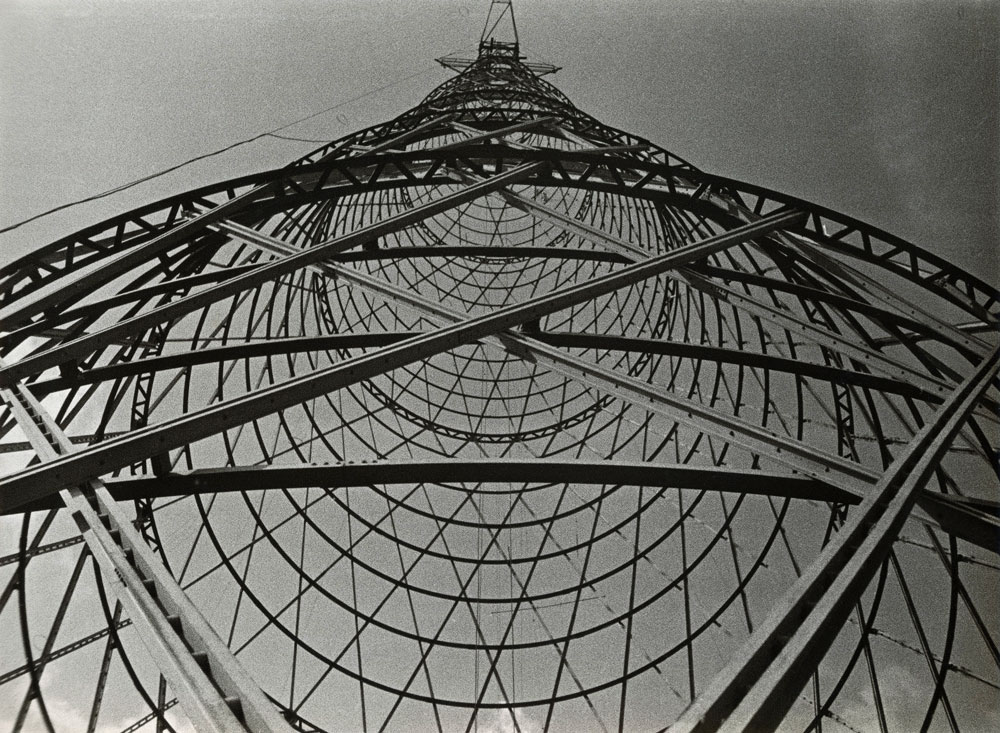
Friday 29 – Saturday 30 June 2018
University of Westminster
London Conference in Critical Thought
Westminster will be hosting the 7th annual London Conference in Critical Thought (LCCT), courtesy of our colleagues in the Department of Politics and International Relations.
Central to the vision of the conference is an inter-institutional, non-hierarchical and accessible event that makes a particular effort to embrace emergent thought and the participation of emerging academics, fostering new avenues for critically-oriented scholarship and collaboration. The conference is divided into thematic streams, each coordinated by different researchers and with separate calls for papers. The organisers welcome paper proposals that respond to the particular streams below. In addition, papers may be proposed as part of a general stream, i.e. with no specific stream in mind. Spanning a range of broad themes, these streams provide the impetus for new points of dialogue.
- Art and Automation
- Capital, Event and Agency (1968-2018)
- Disruptions, Interventions and Liminalities: Critical Performative Pedagogies
- Infrastructure, “infrapolitics” and experimentation
- Politics of/in the Anthropocene
- Resistant Bodies. On resistance and its corporeal challenges
- Taking Positions
- The Politics of Truth
- Thinking Affect and Postcoloniality Together
- Time, Cities, Bodies
- Writing to Think
The Full Call for Papers can be found here: LCCT CfP 2018 feb 26
Please send paper/presentation proposals with the relevant stream indicated in the subject line to paper–subs@londoncritical.org. Submissions should be no more than 250 words and should be received by Monday 26th March 2018.
Detective Novels and the First World War, Thursday 8th March
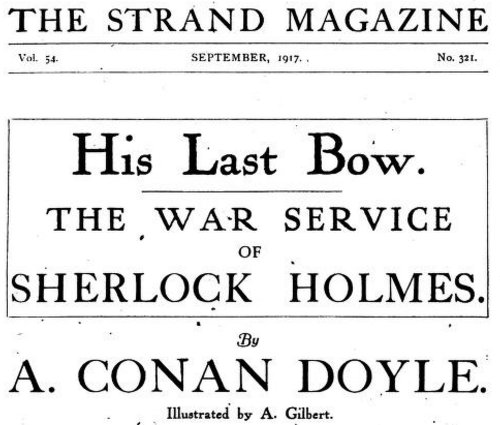
Thursday 8th March 2018, 5.00 pm
Room 351, University of Westminster, 309 Regent Street, London W1B 2HW
Detective Novels and the First World War
Professor Jane Mattisson Ekstam (Østfold University College, Norway)
Hosted by our friends in History, Professor Ekstam, who is currently a Visiting Research Fellow at Westminster, discusses the relationship between detective novels and representation of the First World War. This provides a particularly fertile context for examining human motivation and suffering, and for looking at ways of dealing with crime in war and peace, not least in Britain where the majority of war-related detective fiction was produced. Followed by drinks reception.
Roundtable on London Gothic, Weds 21st February 2018
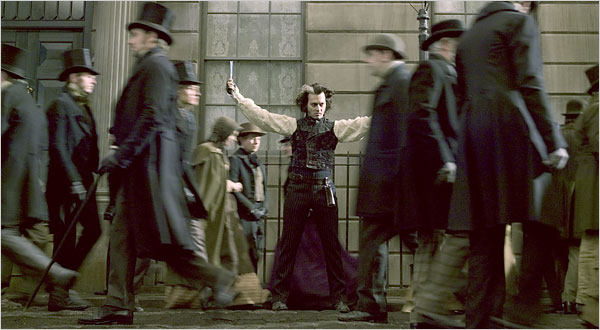
Wednesday 21st February 2018, 5.00 pm
Room 206, University of Westminster, 32-38 Wells Street, London W1T 3UW
If there’s something strange in your neighbourhood … A Roundtable on London Gothic
Monica Germana, Emma McEvoy, Alexandra Warwick, Anne Witchard
London has taken a central role in the urban Gothic, from canonical texts like Strange Case of Dr Jekyll and Mr Hyde, The Picture of Dorian Gray, and Dracula, through modern film and visual culture, to the ‘tourist gothic’ of rebranded gastropubs and ghost tours. As a specific category, London Gothic is becoming as important for understanding ourselves today as it has been for thinking about the cultural productions of the late-nineteenth century. But what does it mean to think of London as a gothic environment? How has this understanding been shaped by historical events and cultural texts? What ghosts and monsters lurk behind the city’s walls? And how does their lingering presence change the way we interact with the streets around us? Join us for an evening of spooky stories and spectral delights as our panel of Westminster experts (Monica Germana, Emma McEvoy, Alex Warwick and Anne Witchard) examine the changing face of London Gothic, past, present, and future.
Followed by the usual drinks at The Green Man …
Georgina Colby, Forms of Solidarity Weds 7th February
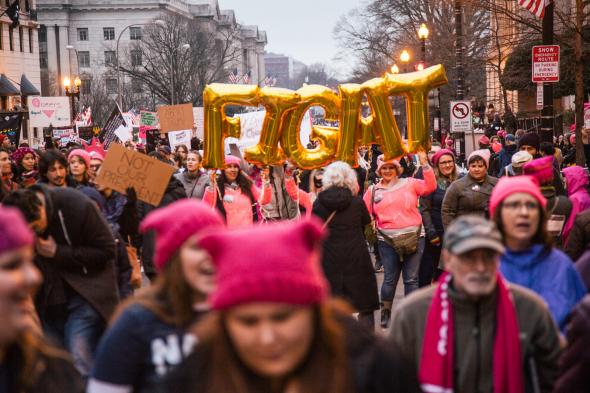
Wednesday 7th February 2018, 5.00 pm
Room 206, University of Westminster, 32-38 Wells Street, London W1T 3UW
Forms of Solidarity
Georgina Colby (Westminster)
On January 20, 2017, the day of Donald Trump’s inauguration, a pamphlet titled ‘Solidarity Texts: Radiant Re-Sisters’, comprising 69 texts by experimental women writers, was collated and distributed by the poet Laynie Browne to the feminist community ahead of the Women’s March on Washington, scheduled to take place the following day. The collection of works varied from collages, poems, letters, artworks, scans of handwritten poems in notebooks, shorts essays, animated sketches and links to film and performance works, and experimental prose. The texts each use experimental form as resistance against the increasingly conservative political climate in the U.S. Browne’s distribution of the texts as activist tools for the protest gestures to the revival of experimental works by women writers, artists, and filmmakers as forms of activism in the present climate. This paper explores the relation between forms of feminist solidarity, literary experiment, and new activisms in these texts of resistance.
All welcome! Followed by drinks in the Green Man …
The Popular Front Novel in Britain – out now!
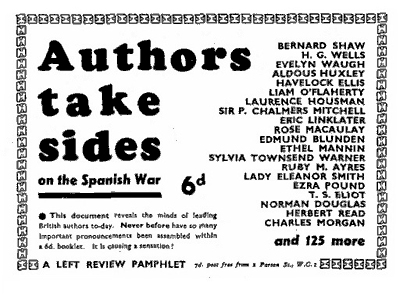
Looking for a Christmas present for the literary Marxist in your life? Out now: our own Elinor Taylor’s book The Popular Front Novel in Britain, 1934-1940 (Brill Historical Materialism series)!
In The Popular Front Novel in Britain, 1934-1940, Elinor Taylor provides the first study of the relationship between the British novel and the anti-fascist Popular Front strategy endorsed by the Comintern in 1935. Through readings of novels by British Communists including Jack Lindsay, John Sommerfield, Lewis Jones and James Barke, Taylor shows that the realist novel of the left was a key site in which the politics of anti-fascist alliance were rehearsed. Maintaining a dialogue with theories of populism and with Georg Lukács’s vision of a revived literary realism ensuing from the Popular Front, this book at once illuminates the cultural formation of the Popular Front in Britain and proposes a new framework for reading British fiction of this period.
The nice people at Historical Materialism have also posted a translation of an interview with Elinor, originally published in French in the journal Période, on their website. You can read it here: http://www.historicalmaterialism.org/popular-front-novel-interview-with-elinor-taylor
On the Nomos of the Post/Colony seminar, December 1st 2017

Friday 1st December 2017, 10.00 am – 3.00 pm
Westminster Forum, 5th Floor, University of Westminster, 32-38 Wells Street, London W1T 3UW
Nomos, Postcoloniality and Spatial Justice
Rory Rowan (University of Zurich), “A Neo-Colonial Nomos of the Earth?”
Peter Fitzpatrick (Kent), “Hidden Empires: Finding the Elusive space of Neo-Imperialism – and the Significance of Law”
Carrol Clarkson (University of Amsterdam), “Redrawing the Lines”
Part of the “Nomos, Postcoloniality and Spatial Justice” series of events organised by our friends in the Law and Theory Lab and funded by the British Academy Newton Advanced Fellowship Scheme. Further details from here. Or contact Julia Chryssostalis at J. Chryssostalis@Westminster.ac.uk
Martin Willis on the Ideals of Sleep seminar, Weds 22 November
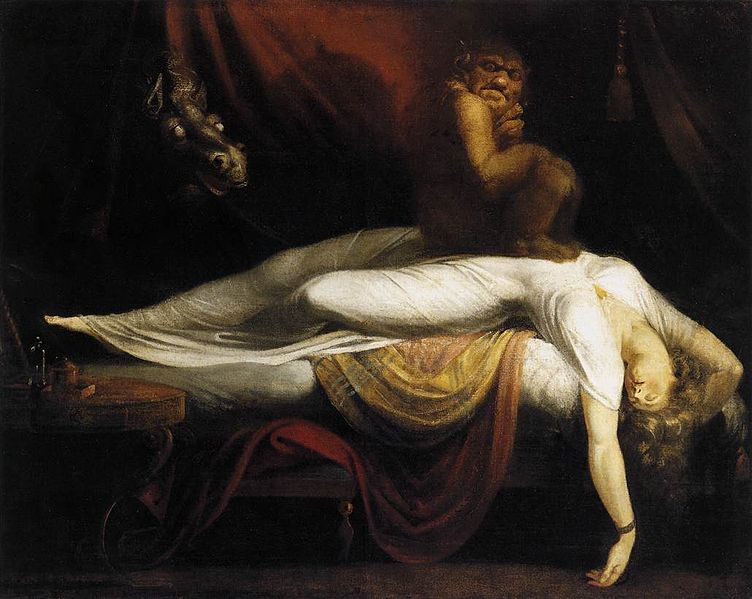
Wednesday 22nd November, 5.00 – 7.00 pm
Room 206, University of Westminster, 32-38 Wells Street, London W1T 3UW
The Ideals of Sleep: Victorian Sleep Research and Utopianism
Martin Willis (Cardiff)
We seem obsessed by the quality of our sleep in the twenty-first century, yet the high point of sleep research was the second half of the nineteenth century, and particularly the period from 1880-1900, when modern sleep studies began. For the Victorians, sleep was an active state (often linked to other cognitive pathologies and dissonances like catalepsy and epilepsy), which enabled or disabled certain functions of mind and body. How one slept was therefore of considerable interest to the general public as well as to physiologists, physicians and neurologists. Concurrent with this avid attention to the epistemologies of sleep, utopian fictions employed sleep as a foundation for asking questions of ideal lives and worlds. Often, other worlds were entered through the medium of sleep. This seminar will consider the connections between sleep and utopia, and ask whether sleep is itself an ideal place. It will do so by thinking not only about Victorian sleep, but about how contemporary sleep studies might inform our own ‘looking backwards’ to earlier scientific knowledge.
Coming Out In/to Poetry with Stephen Guy-Bray, Friday 17 November
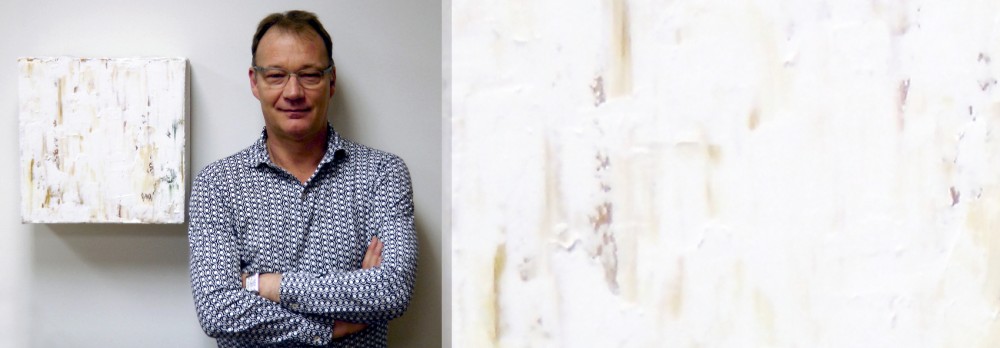
Friday 17th November, 6 – 8 pm
University of Westminster, 309 Regent Street, London W1B 2HW
Coming Out In/To Poetry
Professor Stephen Guy-Bray (University of British Columbia)
The Queer London Research Forum is hosting Stephen Guy-Bray for its first event this academic year. Professor Guy-Bray’s talk will address the idea that ‘[w]e all have coming out stories and we tend to think of them as personal and individual – our own property, our own history. But as we all have them, a coming out story can also be considered part of a vast communal project and, for poets, as a specifically literary project. In this talk Stephen Guy-Bray looks at two 20th-century poems (Luis Cernuda’s “Diré cómo nacisteis” and Adrienne Rich’s “A Valediction Forbidding Mourning”) and one 21st-century poem (Ocean Vuong’s “Someday I’ll Love Ocean Vuong”) in order to see how some poets have considered coming out as simultaneously personal and public.’
Stephen Guy-Bray is a specialist in Renaissance poetry and queer theory, with interests in poetics and in comparative literature. His publications include Against Reproduction: Where Renaissance Texts Come From (2009), Loving in Verse: Poetic Influence as Erotic (2006), and Homoerotic Space: The Poetics of Loss in Renaissance Literature (2002). Along with Joan Pong Linton and Steve Mentz he edited The Age of Thomas Nashe: Texts, Bodies and Trespasses of Authorship in Early Modern England (2013) and with Vin Nardizzi and Will Stockton, Queer Renaissance Historiography: Backward Gaze (2009)
Attendance is free but booking is mandatory, please register here: https://www.eventbrite.co.uk/e/coming-out-into-poetry-with-stephen-guy-bray-tickets-39191402540
Digital Cultures Roundtable, November 8th 2017
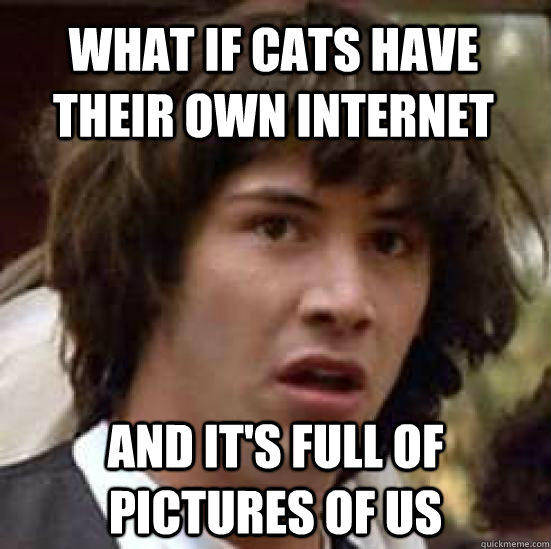
Wednesday 8th November, 5 – 7 pm
Room 206, University of Westminster, 32-38 Wells Street, London W1T 3UW
Digital Cultures: A Roundtable
Hosted by Westminster’s English Literature and Culture research series, and sponsored by the IMCC, this seminar will explore one of the most ubiquitous and at the same time elusive phenomena of contemporary culture: the experience of digitality.
Zara Dinnen is a Lecturer in Twentieth and Twenty-First Century Literature at Queen Mary, University of London and a founding executive committee member of the British Association of Contemporary Literary Studies. Her work focuses on representation of digital media in literary and popular culture. Her monograph, The Digital Banal, will be published by Columbia University Press in 2018.
Seb Franklin is a Lecturer in Contemporary Literature at King’s College London. His research includes literature, visual media, and media theory, especially histories of digital technology and cybernetics. He is the author of Control: Digitally as Cultural Logic (MIT Press, 2015).
Talita Jenman ran the Arts & Culture programme at ZSL London Zoo and has given talks at the National Gallery and Welcome Collection, among others, focusing on memetic culture and its relationship to animals. She is an alumna of MA Art and Visual Culture at Westminster.
Chaired by Kaja Marczewska (Westminster/IMCC)
All welcome – followed by drinks at the Green Man, Riding House Street.
The Soho Poly Theatre re-opens for one week only! November 20th-24th
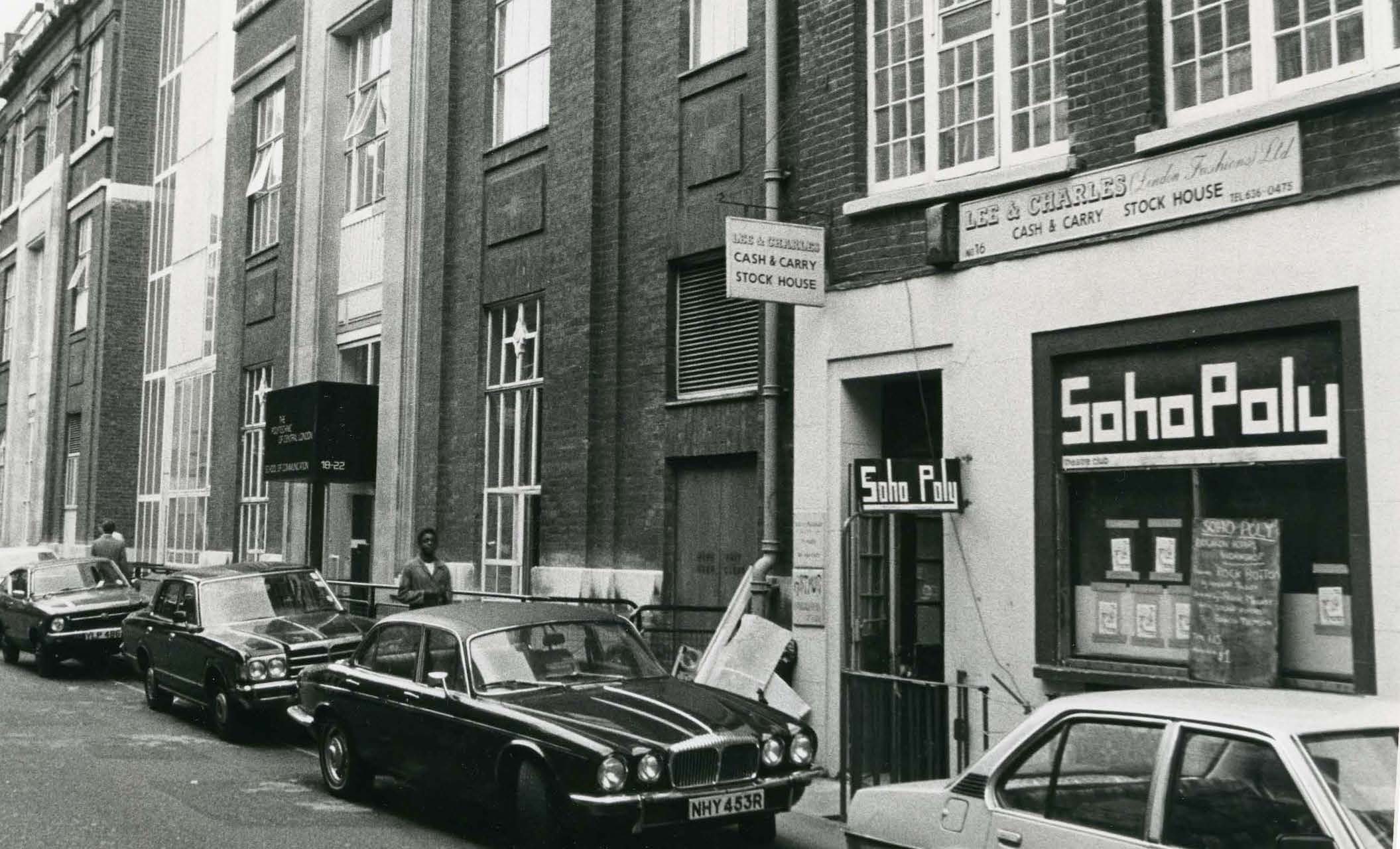
Monday 20th – Friday 24th November 2017
University of Westminster, 4-12 Little Titchfield Street London W1W 7BY
Found Theatre and Poetry: Disrupting the Everyday
As a part of the AHRC / British Academy funded Being Human Festival, the University of Westminster will be opening up London’s most important ‘lost’ theatre, the original Soho Poly Theatre, for the whole week beginning November 20th for visitors to come and see.
The Soho Poly Theatre – the radical forerunner of today’s Soho Theatre on Dean Street – operated out of a tiny basement room belonging to the University from 1972-1990. Many of the country’s best-known writers, actors, designers and directors worked here during this time. Curated by Guy Osborn and our own Matt Morrison, the project offers an opportunity to experience an exciting and varied series of events. Including a newly commissioned piece of digital theatre, live poetry readings and an exhibition of rare Nobby Clark photographs – all to be enjoyed in the specially reopened Soho Poly basement itself.
Tickets available from here
Theatre and Performance: Tempestuous Technologies seminar, October 25th 2017
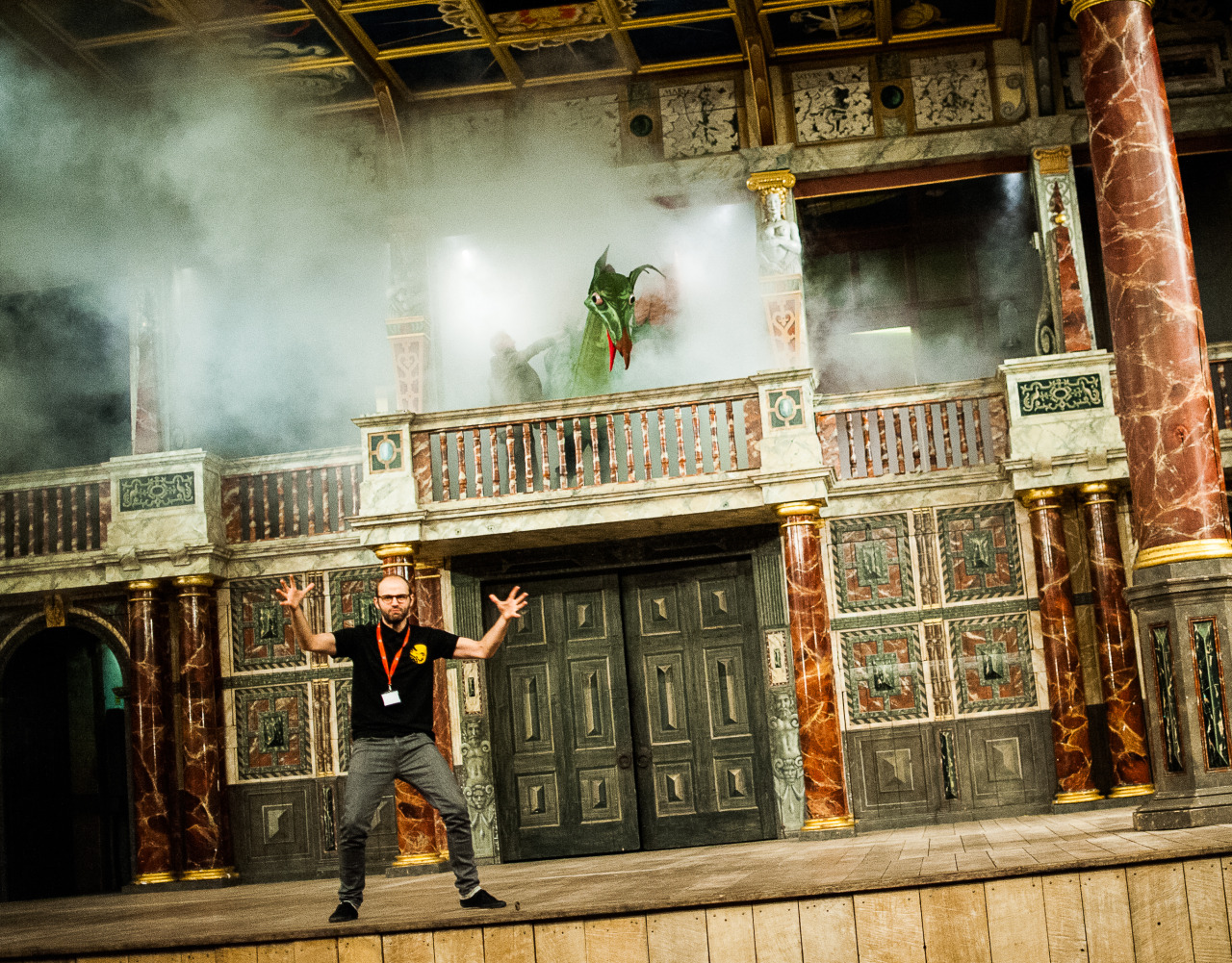
Wednesday 25th October, 5 – 7 pm
Room UG04, University of Westminster, 309 Regent Street, London W1B
Theatre and Performance: Tempestuous Technologies
Bringing together expert scholars and practitioners, this seminar examines the ways in which the use of technology can transform theatrical experience, for better and, perhaps, for worse. How do you conjure magic on a bare stage? Why did the use of special effects in the professional theatre recently cause a national controversy? How can digital technologies change the way we think about drama and production?
Leading Shakespeare scholar Dr Gwilym Jones talks about the development of early special effects in the Elizabethan theatre. Course leader for the Theatre Studies and English Literature BA and Theatre Studies and Creative Writing BA Dr Kate Graham discusses the outcry over the use of lighting and sound effects at Shakespeare’s Globe. Finally, Dramatist Dr Matthew Morrison will talk about the use of live streaming in his own theatre practice. Join us for an evening of discussion and debate about the relationship between technology and performance in theatres of the past, present and future.
This event is free and open to all students and staff at the University of Westminster – there is no need to book. Members of the public should email Matthew Charles at m.charles1@westminster.ac.uk to register.
Hybrid Bodies exhibition, London Gallery West

October 20th – November 16th 2017 (Private View: October 19th, 5-8 pm)
London Gallery West, University of Westminster, The Forum, Watford Road, Harrow, HA1 3TP
Hybrid Bodies
Ingrid Bachmann, Andrew Carnie, Alexa Wright
What does it mean to carry the heart of another person? Why do many heart transplants that appear clinically successful develop unexpected complications or fail? Hybrid Bodies is a multi-disciplinary research project, bringing together the arts, ethics, medicine and social sciences to investigate the complexities of heart transplantation. The project focuses on the lived experiences of heart transplant recipients, translating their stories into medical and academic literature as well as artworks.
Since 2007, artists Ingrid Bachmann, Andrew Carnie and the IMCC’s own Alexa Wright have been part of an international interdisciplinary team lead by Canadian cardiologist Dr Heather Ross and British philosopher Professor Margrit Shildrick. Uniquely for a collaborative project between artists and other specialists, the artists have worked in parallel with the scientists; exploring questions around the emotional, psychological and physiological experience of heart transplantation. The key research material is a collection of video interviews which reveal surprising levels of distress among post-transplant patients, strongly contradicting the belief that receiving a new heart is a simple solution to extending life.
Alexa Wright’s work explores the impact transplant can have on a recipient’s sense of self as a bounded and unique individual. In Heart of the Matter (2014), individual accounts of heart transplant are juxtaposed with personal narratives of lost loves and intimate relationships, forming a web of interconnected testimonies about the effects of a physical or emotional change of heart. Andrew Carnie is interested in how interconnections between different living systems can alter and extend a sense of self. A Change of Heart (2012) is a projected work based on drawings made while the artist listened to taped interviews with post-transplant patients and their analysis by social scientists. His constantly morphing figure captures a sense of everything in flux, in a continual state of becoming. Like the experience of transplant, Ingrid Bachmann’s A-part of Me (2014) is intensely physical, yet immaterial. Indicating both the challenges and benefits of empathetic listening, her sculptural listening device uses bone transducers to conduct sound to the inner ear using the skull as a resonating chamber, allowing participants to hear the narratives of the transplant recipients intimately, both in and through their body.
To find out more about this ongoing project and the people involved, visit www.hybridbodiesproject.com

